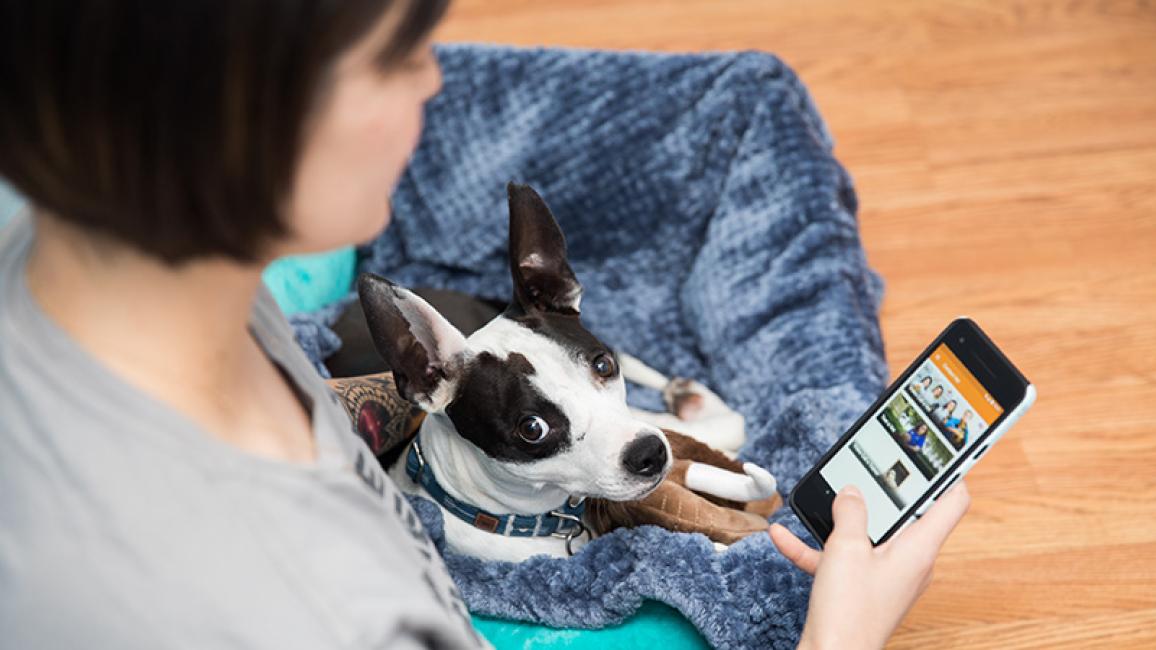Virtual lifesaving: Unleashing online veterinary consults in the era of COVID-19 and beyond

So, here’s a question for you: What would you do if a family member who’s considered high risk for coronavirus (maybe your mom or your grandfather) suddenly requires veterinary help for a pet? It’s not a good idea for that person to just hop in the car and take that pet to the vet.
Providence St. Joseph Health, which serves communities across seven western states, had the unique experience of treating the very first patient in the U.S. with COVID-19. And part of the reason they were prepared for it was what they learned from and the infrastructure they built in response to the SARS and Ebola epidemics. At the center of that infrastructure is access to virtual medicine technology that is helping to meet the needs of patients who can’t (or shouldn’t) physically come into the hospital.
From chatbots and telehealth services that help triage and evaluate patients at home to remote devices that can monitor a patient’s vital signs, technological innovation is helping to bridge critical gaps in lifesaving support in this country, now brought into sharper focus during the current pandemic.
In the aftermath of Hurricane Harvey, when Texas residents couldn’t travel to or access many essential services, veterinary support for pets became a luxury to which very few people had access. As part of Best Friends’ emergency response and relief work during that time, we offered three months of free access to the Best Friends Vet Access app. Through the service, people with pets have 24/7 virtual access to a veterinarian for guidance on any medical, behavioral or nutritional issues their pets might be having. With roughly 2,000 video chat calls made each month through the app during that time in Texas, it became a literal lifesaver.
Today, thanks to the global crisis we now find ourselves in, veterinary telehealth and telemedicine development has been accelerated and barriers to these essential services are being removed swiftly to keep both pets and the people who love them safe.
Best Friends has offered 5,000 free 30-day subscriptions to the vet access app to pet owners in New York, the current epicenter of the coronavirus outbreak.
Maddie's Fund® has been and continues to be an incredible partner to animal-focused programs and organizations nationwide, and their leadership during the current crisis is no exception. #ThanksToMaddie, we have expanded the Best Friends Vet Access app to thousands more foster families across the country.
The free app allows people fostering pets for shelters and rescue groups to reach a veterinarian 24/7, 365 days a year, and supports 104 languages. Just the other day, a woman fostering a litter of 11-day-old kittens in Pima County, Arizona, was able to video chat through the app with a veterinarian and get the guidance she needed right there in her home.
Best Friends is also teaming up with Boehringer Ingelheim Animal Health to offer their PetPro Connect telemedicine platform free to shelters and rescue organizations. Through the platform, individual shelter veterinarians can sign up to use the service and ultimately video chat with foster families as well as prescribe any necessary medications (as permitted by state laws). Then, those medications can be filled through an online pharmacy and shipped directly to the foster home.
At a moment when first-time foster families are stepping up in droves to support their local animal shelters, innovative services and partnerships like these are key. Right now, providing access to veterinary care that allows people to be compliant with shelter-in-place and stay-at-home orders is a top priority. But looking behind the current crisis, these kinds of services are still needed and replacing any previous barriers to them once the pandemic has ended would be a mistake.
We live in a resource-rich country, but access to those resources is not evenly distributed. Many communities around the country don’t even have a local veterinary office or any kind of local shelter or animal services supporting them. When Best Friends first partnered with what is now Palm Valley Animal Society in the Rio Grande Valley in Texas, we were astonished by the lack of adequate support services compared to other cities serving populations of a similar size. With only a small number of veterinary offices serving the roughly 750,000 residents in Hidalgo County, the area was a textbook example of a resource desert.
Telehealth and telemedicine services for both pets and people are becoming linchpin services during the pandemic, but they are also the wave of the future and a critical, common-sense step to bridging that support gap in communities nationwide.
